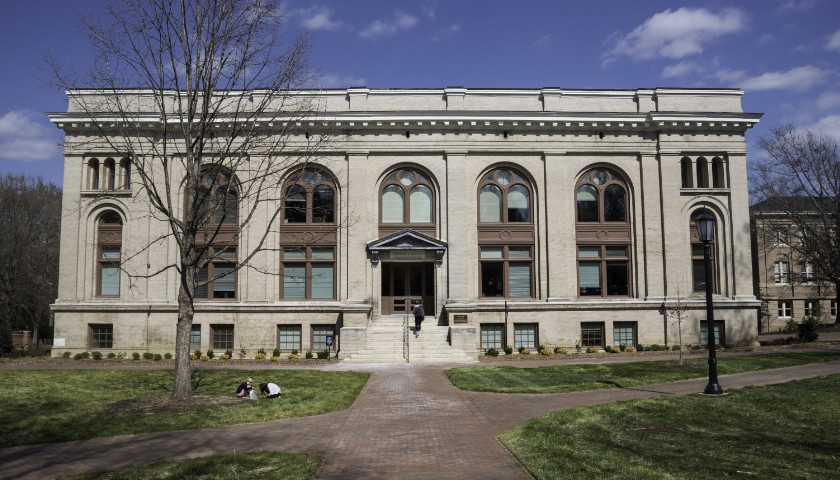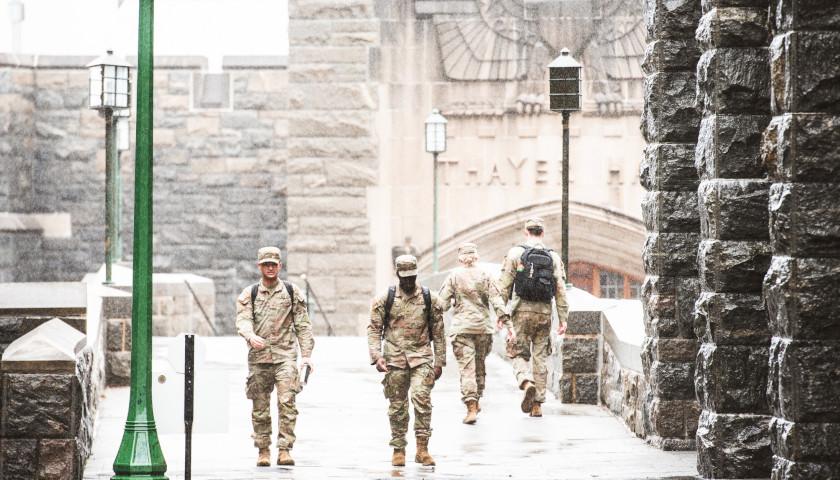North Carolina’s flagship public university is under legal fire for the allegedly over-use of race-based admissions policies. Specifically, the University of North Carolina at Chapel Hill is being accused of over-selecting minorities in their admissions and related policies.
Students For Fair Admissions (SFFA), a non-profit based in Virginia, filed a motion for summary judgment against UNC-Chapel Hill in January.
“UNC’s use of race is the opposite of individualized; UNC uses race mechanically to ensure the admission of the vast majority of underrepresented minorities,” says the SFFA motion.
UNC-Chapel Hill responded to the motion in their own brief, stating that the school has a “longstanding commitment to diversity.”
“In its academic judgment, the university has determined that pursuing the educational benefits of diversity is integral to fulfilling its mission to prepare the next generation of leaders,” said UNC-Chapel Hill’s response.
In addition to filing suit, a dedicated website called uncnotfair.org has been set up by SFFA. “Were You Denied Admission to the University of North Carolina? It may be because you’re the wrong race,” the website’s front page reads.
SFFA’s plaintiff is an unnamed white male from North Carolina who applied for and was denied admission for the Fall of 2014.
The plaintiff scored 90 points shy of a perfect SAT score of 1600 and 32 out of a possible 36 on the ACT. In addition, the lawsuit says that the plaintiff has perfect scores on four separate Advanced Placement exams and 4.4839 weighted grade point average.
The in the filing, the plaintiff says he “was denied the opportunity to compete … on equal footing with other applicants on the basis of race or ethnicity due to UNC-Chapel Hill’s discriminatory admissions policies.”
Students for Fair Admissions motion for summary judgment charges that UNC doesn’t ass the “strict scrutiny to withstand this legal challenge.”
A “strict scrutiny” test is one where affirmative action policies, such as university admissions, are strictly reviewed and will be only considered constitutional if the practices are “narrowly tailored.” In other words, the practices or policies cannot be just about race.
The SFFA summary motion states that UNC needs to meet three criteria to prove that the university is not over-using race in their admissions practices. The motion states that criteria as:
(1) that it uses race to enroll a “critical mass” of underrepresented minorities;
(2) that its use of race is individualized; and
(3) that it cannot achieve student body diversity through the implementation of race-neutral alternatives. Grutter v. Bollinger, 539 U.S. 306, 334-340 (2003).
“UNC cannot make any of these showings. UNC officials could not even agree on what critical mass means—let alone show that they have pursued it,” the SFFA motion says. “UNC’s use of race is the opposite of individualized; UNC uses race mechanically to ensure the admission of the vast majority of underrepresented minorities.”
The motion goes on to use UNC’s own policy to prove their case, stating that “According to UNC, an applicant’s race can be a “‘plus’ that is awarded” and “may be significant in an individual case and tip the balance towards the admission of the student.”
The verbiage “strict scrutiny” in this motion is a reference to the Fisher v. University of Texas case ruled on by the U.S. Supreme Court in October of 2012. The term “strict scrutiny” itself goes back farther, to 1978 and the University of California at Davis v. Bakke.
The Fisher opinion asserts that “It is at all times the University’s obligation to demonstrate, and the Judiciary’s obligation to determine, that admissions processes ensure that each applicant is evaluated as an individual and not in a way that makes an applicant’s race or ethnicity the defining feature of his or her application.”
Important in the Fisher ruling is the Supreme Court’s position that a university needs to prove it has first tried some other “workable” methods of minority students enrollment that do not rely just on race.
“But strict scrutiny imposes on the university the ultimate burden of demonstrating, before turning to racial classifications, that available, workable race-neutral alternatives do not suffice.”
Strict scrutiny of UNC’s policies in the SFFA and UNC-Chapel Hill case will land in court in April 2019, according to an end of year report by SFFA.
– – –
A.P. Dillon is the North Carolina Bureau Chief for The Tennesee Star and a reporter at Battleground State News. Follow A.P. Dillon on Twitter. Email Tips to [email protected].








